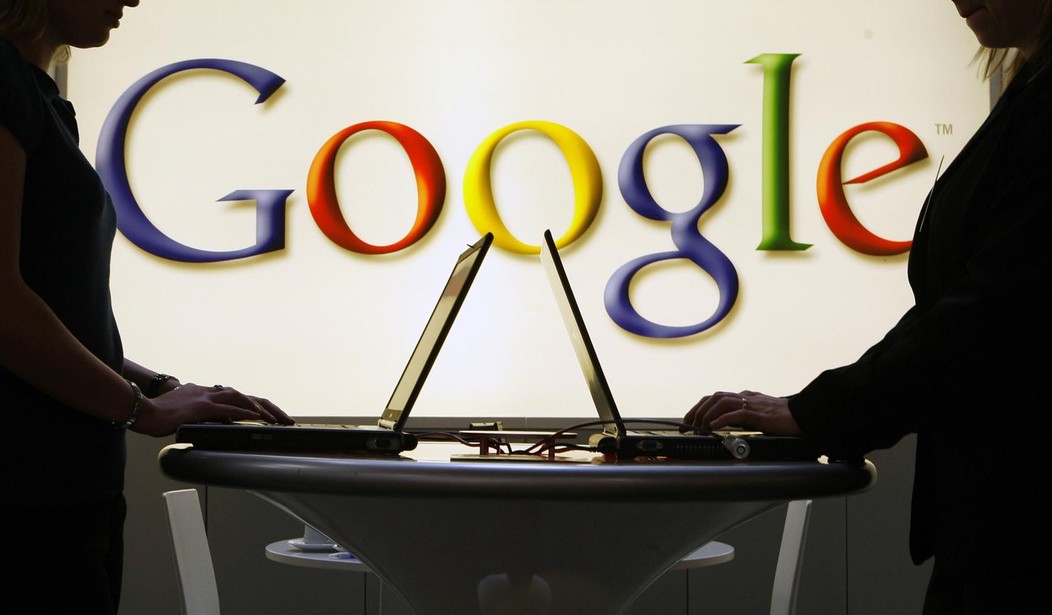The Department of Justice (DOJ) under President Donald Trump will file an antitrust lawsuit against Google on Tuesday. Both Republicans and Democrats have accused Google of engaging in anticompetitive conduct to preserve monopolies in search and search advertising. Psychologist Robert Epstein has long warned about the potential political impact of Google Search, claiming that Google bias may have been responsible for Hillary Clinton’s lead in the popular vote in 2016.
The DOJ will allege that Google, a unit of Alphabet Inc., is maintaining its status as a gatekeeper to the internet “through an unlawful web of exclusionary and interlocking business agreements that shut out competitors,” DOJ officials told The Wall Street Journal in an exclusive.
“The government will allege that Google uses billions of dollars collected from advertisements on its platform to pay mobile-phone manufacturers, carriers and browsers, like Apple Inc.’s Safari, to maintain Google as their preset, default search engine,” WSJ reported.
As a result of such practices, Google dominates search on hundreds of millions of American devices “with little opportunity for any competitor to make inroads, the government will allege.”
The lawsuit will also fault Google for arrangements in which Google’s Search application is preloaded and cannot be deleted from mobile phones running the Android operating system. The DOJ will claim that such arrangements unlawfully edge out competing search engines.
Google owns or controls search distribution channels for about 80 percent of search queries in the U.S. According to the lawsuit, that means Google’s competitors cannot get a meaningful number of search queries to build the scale needed to compete, leaving consumers with less choice and less innovation and advertisers with less competitive prices.
The company has defended its prime position, arguing that its competitive edge comes from offering a product that billions of people freely choose to use each day. Google has argued that it faces vigorous competition across its different operations and that its products and platforms help both small and large businesses to reach new customers.
Google offers its services at little or no cost, undercutting the traditional antitrust argument around potential price controls.
Even so, the company’s massive search footprint has attracted legal challenges from both sides of the aisle. Democrats on a House antitrust subcommittee released a report this month, claiming that Amazon, Apple, Facebook, and Google wield monopoly power and recommending congressional action.
The Federal Trade Commission (FTC) investigated Google for more than a year but decided against bringing an antitrust case in 2013. That case focused on claims that Google engaged in “search bias” by favoring its own services and demoting rivals like Yelp and Tripadvisor, which have long complained about Google’s search power. The FTC ultimately concluded that such a case would be hard to win because while the company desires to hobble rivals, it also pursues its policies to advance quality products and services for consumers.
The DOJ’s case will not focus on a search-bias theory, officials told WSJ.
The DOJ has investigated Google for more than a year. Nearly all state attorneys general are separately investigating the search company, while Amazon, Apple, and Facebook also face antitrust scrutiny. More than ten state attorneys general are expected to join the DOJ’s case.
The case will likely take years to resolve. If Google loses, a court may mandate changes to its business operations in order to create new openings for rival companies. The DOJ lawsuit will not specify particular remedies yet — this kind of recommendation will be addressed later in the case. If Google wins, a court ruling could hobble the government’s attempts to rein in Big Tech. However, a Google victory may spur Congress to take legislative action.
Former Google Engineer Says Google Will Try to Prevent Trump’s Reelection
The impact of Google’s near-monopoly
Google’s search engine has achieved such a near-monopoly that Americans will use the verb “to google” rather than “to search.” This seems innocent enough — after all, Google does provide an excellent search engine. Yet critics have long raised concerns that Google’s near-monopoly on internet search could have hidden impacts on Americans.
Ph.D. psychologist Robert Epstein, who supported Hillary Clinton in 2016, has long warned about Google’s power to manipulate elections. In 2017, he wrote a white paper arguing that Clinton’s popular vote margin was almost entirely attributable to pro-Clinton bias at Google.
“Extrapolating from the mathematics introduced in this report … the lead author of the PNAS study [Epstein himself] predicted that a pro-Clinton bias in Google’s search results would, over time, shift at least 2.6 million votes to Clinton. She won the popular vote in the November election by 2,864,974 votes,” Epstein wrote with his co-author Ronald E. Robertson.
“Without the pro-Clinton bias in Google’s search results, her win margin in the popular vote would have been negligible,” Epstein wrote.
A 2018 survey found that conservative employees in Silicon Valley tech companies live in fear that their political beliefs will be found out. James Damore said conservatives at Google are “in the closet” and that Google executives are digging through a secret email list in order to out them.
Last month, a Google whistleblower told Project Veritas that Google News results are intentionally biased against Trump. This seemed to confirm the results of an unscientific test on Google News bias run by PJ Media editor Paula Bolyard last year (tweeted out by Trump himself), and a more scientific study also suggesting bias. The Google News slant is not a conspiracy theory, though Google of course denies manipulating results. After all, Google employees heavily favor Democrats in their political donations.
Editor’s Note: It’s time for conservatives to stand together and fight big-tech censorship. Join PJ Media VIP and use the promo code CENSORSHIP for 25% off your VIP membership.
More than 90 percent of political contributions from employees of Alphabet, Google’s parent company, have gone to Democrats since 2004. In 2018, 96 percent went to Democrats.
Yet Google bias may not always be liberal. All Americans should be concerned about Google’s ability to interfere in elections, and a former Google engineer said the company will try to prevent Trump’s reelection. This should worry all Americans, no matter what they think about Trump.
Google’s near-monopoly should worry Americans, and this lawsuit may be a step in the right direction. Even so, Americans should also worry about a government take-over of Big Tech. Antitrust actions against Google may be necessary, but if politicians and regulators get their hands on the kind of power Google possesses, the prospects might be far worse than the threat Google currently poses.
Tyler O’Neil is the author of Making Hate Pay: The Corruption of the Southern Poverty Law Center. Follow him on Twitter at @Tyler2ONeil.









Join the conversation as a VIP Member